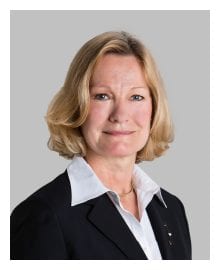There is no denying that in background screening we process a lot of personally identifiable information (PII). Clients and their candidates put a lot of trust in us when it comes to protecting their personal information.
Perhaps you’ve seen the letters after my name (CIPP/C, CIPP/E, CIPP/US) or heard the ClearStar team talk about our privacy certifications. These certifications represent a personal commitment by me as well as a huge investment by my employer. They make a statement about the areas I focus on at work. If you’ve read my previous blogs, you will be familiar with some of the key privacy principles. You’ll recall that Collection Limitation is close to my heart.
In this blog, I’d like to explain why these privacy certifications are so important to our clients and their candidates. I also hope to explain what these certifications say about the company I keep.
For years, Andy Hellman, Managing Director of International & Strategic Initiatives at ClearStar, has encouraged me to take classes in privacy and earn privacy certifications. I have found the International Association of Privacy Professionals (IAPP) to be a fantastic organization for this purpose. Members have access to excellent support material and webinars. The members’ discussion board is very active and educational. (Someday, I hope the NAPBS Community Forum will be as active and helpful.) IAPP has great, free resources for non-members also. As I’ve listed in earlier posts, the Daily Dashboard and the Digests are easy to skim for information pertinent to our business.
Achieving certifications in privacy has been invaluable for my work in global screening. The basic privacy designation, CIPP, helped me learn the fundamentals of privacy. It also educated me on the language of privacy. FIPP, collection limitation, and subject access became familiar terms. From there, the special designations gave me deeper insight into regional or country requirements.
Andy wound up catching the privacy bug too. He holds the CIPP designation, a specialty for Europe (CIPP/E), and a CIPM, which focuses on Privacy Management. He was a member of the initial group to achieve the designation of Fellow of Information Privacy (FIP), recognizing not only his studies in privacy, but also his on-the-job practice.
While it is true that these certifications can be a marketing tool, they can and should be much more than that.
First, they are a training tool to learn privacy requirements. Sitting in the classes, attending lectures, networking with peers, following the email forum, and sitting for exams all help to provide knowledge and experience in implementing privacy requirements in your organization. Ongoing CPE requirements keep us motivated for continued learning.
Second, they are a comfort to clients and candidates. Companies that invest in training and certifications demonstrate their commitment to certain standards. Clients and candidates located in many countries are very focused on privacy. Knowing that the entities that handle their PII have a focus on privacy is important to them.
Third, they are a statement of commitment, public statements that we hold ourselves to a certain standard of data protection. Further, because these certifications require CPE credits, maintaining the certification(s) requires continued commitment.
On top of all of that, having a work partner at ClearStar with similar designations allows for some exciting discussions like, “How can we reconcile the conflict between the subject access requirements in Privacy Shield and the EU Directive?” (OK, perhaps this isn’t that exciting to most people, but it is important to have these discussions.) It’s even more valuable since Andy and I have designations in different specialties. We speak the same language, but have different experience and education, which allows us to approach and debate privacy problems more thoroughly. And being from the same company allows us to dig deep, without fear of compromising confidential company information.
How can all of this help you?
If you are reading this blog, you probably have an interest in global screening. Start learning about global privacy. Even if you are screening only candidates in the United States, you may still be touching other country’s privacy regulations. Check out the IAPP information. Even if you only get the information they offer at no charge, it’s worth investigating. There are also other great, free resources to tap into.
After that, find someone to talk to. Or better yet, find someone with whom you can have deep discussions or debates. There are a few customers who call me on a regular basis to talk through privacy issues. It’s great for both of us. Don’t underestimate the value of a good discussion to both parties. I’ll leave the light on for you.
If you are a ClearStar client, know that we are committed to privacy and we strive to continually learn. I hope to hear from you soon.
| Kerstin Bagus – Director, Global Initiatives
Kerstin Bagus supports ClearStar’s Global Screening Program as its Director of Global Initiatives. She has more than 30 years of background screening industry experience, working for a variety of firms, large and small. Kerstin is one of the few individuals in the industry who is privacy-certified through the International Association of Privacy Professionals (IAPP) for Canada, the EU, and the U.S. Kerstin is a passionate participant in the Professional Background Screening Association (PBSA, formerly NAPBS) and is a current member of the Board, in addition to participating on several committees. She also participates on IFDAT’s Legal Committee, with a primary focus on global data privacy. |
 |
At ClearStar, we are committed to your success. An important part of your employment screening program involves compliance with various laws and regulations, which is why we are providing information regarding screening requirements in certain countries, region, etc. While we are happy to provide you with this information, it is your responsibility to comply with applicable laws and to understand how such information pertains to your employment screening program. The foregoing information is not offered as legal advice but is instead offered for informational purposes. ClearStar is not a law firm and does not offer legal advice and this communication does not form an attorney client relationship. The foregoing information is therefore not intended as a substitute for the legal advice of a lawyer knowledgeable of the user’s individual circumstances or to provide legal advice. ClearStar makes no assurances regarding the accuracy, completeness, or utility of the information contained in this publication. Legislative, regulatory and case law developments regularly impact on general research and this area is evolving rapidly. ClearStar expressly disclaim any warranties or responsibility or damages associated with or arising out of the information provided herein.












